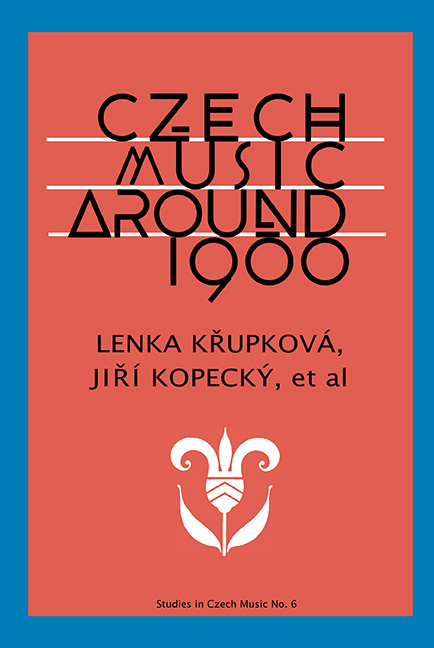Book contents
- Frontmatter
- Table of Contents
- Introductory Remarks on the Conception of This Book
- Flowers in the Graveyard, Tombstones in the Garden
- The “Other World” of Music at the Turn of the Century
- In the Footsteps of Tradition: The Spirit of Romanticism
- Czech Music at the Heart of European Music round 1900
- The Clash with Compositional Issues of European Music
- Index
- List of Illustrations
- About the Authors
- List of Sources Cited
The “Other World” of Music at the Turn of the Century
- Frontmatter
- Table of Contents
- Introductory Remarks on the Conception of This Book
- Flowers in the Graveyard, Tombstones in the Garden
- The “Other World” of Music at the Turn of the Century
- In the Footsteps of Tradition: The Spirit of Romanticism
- Czech Music at the Heart of European Music round 1900
- The Clash with Compositional Issues of European Music
- Index
- List of Illustrations
- About the Authors
- List of Sources Cited
Summary
When in 1898 the Czech litterateur and critic František Václav Krejčí, in his essay on the aesthetics of symbolism, wrote of music as the complete opposite of exact science, and apostrophized music as an ideal art able to penetrate more deeply into the irrational and intuitive aspects of consciousness than painting or lyrical poetry, he was expressing an aesthetic opinion typical of his time. At the turn of the century music occupied a position as an “other world” in a scientific, technical, and positivist era. And this feeling at the end of the century, in its critical focus resulting to a certain extent (though in diverse ways and indirectly) from the atmosphere of Wagner and Nietzsche which it perceived as the opposite of the ending epoch, was part of the breeding ground of European modernism. But what was the particular situation of musical modernism in the Czech lands, in their center of musical happenings—Prague—around the year 1900?
The awareness that came with the 1890s of a special and different category of values, connected with a search for new spiritual certainties, emerged in musical culture earlier than the concept of Czech musical modernism itself, which appeared in this association only years later when it had already entered into everyday vocabulary in literature and the visual arts. Actually the designation “modern” and the category of modernity had played a fundamental role in the Czech musical world in the preceding period, in the Czech Wagnerian disputes, which went hand in hand with disputes over the future of Czech national opera and national music in general and whose core lay in the 1870s. Modernity emerges here as a key evaluative concept, as a philosophical-aesthetic category, defined by the aesthetician Otakar Hostinský as a synonym for newness and progressiveness. Hostinský, building on the work of the “New German School” and its theorist and spokesman, the music historian Franz Brendel, conceived the history of music as a progressive evolutionary line proceeding in its developmental steps in an inevitable process toward ever-more-perfect stages (which had to be conquered also by the words of theorists), whereby music drama and the symphonic poem were proclaimed as contemporary musical progress. Hostinský's conception called for a national art aimed unswervingly at the pinnacle of European progress, and he saw a modern composer capable of following this path in Bedřich Smetana (1824-84).
- Type
- Chapter
- Information
- Czech Music around 1900 , pp. 21 - 38Publisher: Boydell & BrewerPrint publication year: 2017

